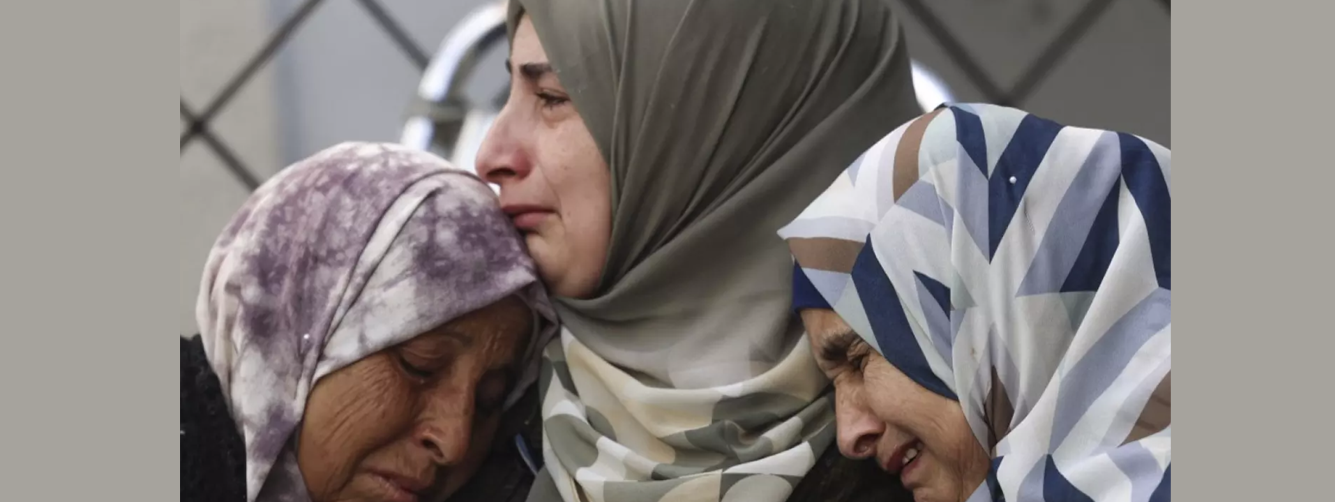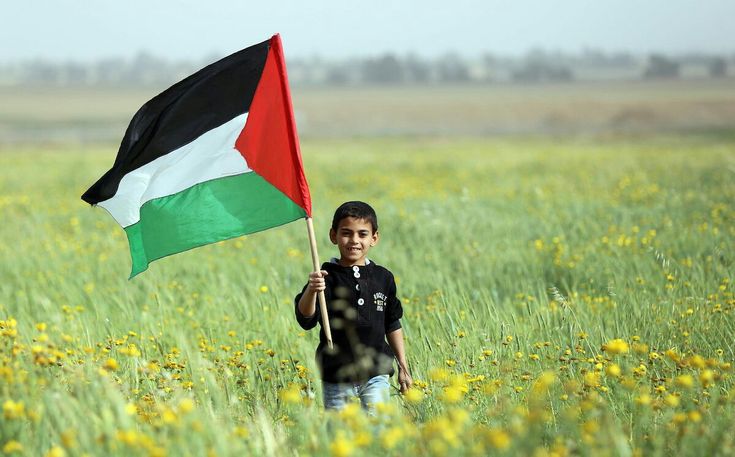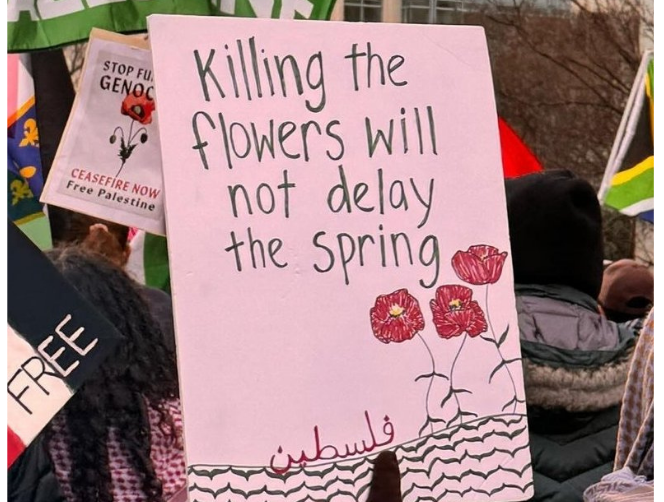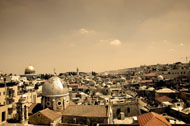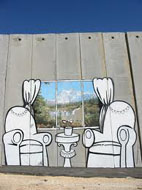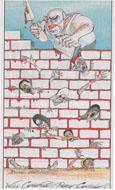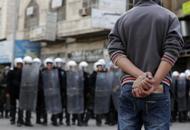
A few nights ago Ramallah again witnessed a clash of civilizations. I was dropping off keys to one of my friends who was sitting with a group of people at the Sangaria restaurant, when all of a sudden the place was hit with chaos. Protestors on the street outside were slamming on the glass windows and yelling, “Close down!” The people at Sangaria’s were startled and afraid and began running around in the restaurant as if Israeli forces were the ones outside. The different attitudes between the people sitting in the cafe and the people screaming outside was indescribable. It was as though we were not from the same place or shared the same aspirations. The people inside were relaxing and chatting; seemingly without a care in the world. The people outside were agitated and furious; surely riled up by some powerful event.
On my way back out I overheard a couple bickering, “How does the death of a prisoner justify attacking a restaurant? They can’t just do this!” the husband said.
“Shame on us! When we were young we were the ones closing such places down. We should be with these people freeing Palestine and not dining on nachos and cheese sticks!” his wife growled back.
These protesters were closing down one place after the other that night and demanding people take to the streets and carry out a national three-day strike for the sake of the prisoners in Israeli jails. The protesters were angry and baffled by the nonchalance of Ramallah residents.
The strike barely lasted for a few hours in Ramallah. It was actually over before it started – and the idea of it stretching over three days never caught on or was even mentioned for that matter. To Israel, Arafat Jaradat was a pilot study with the question being: What would happen to the political situation if Israel let the prisoners on hunger strike literally die from starvation? The results were clear and without reserve. Absolutely nothing. The fact that a 30-year-old Palestinian was brutally beaten to death wasn’t even worth a couple of hours of protest, let alone a full-day of economic strike.
I turned on the news to hear the head of the Palestinian Prisoner’s Club and former PA minister, Qaddura Fares describing the prisoner death as a catalyst for a third Palestinian Intifada. I thought, ‘Finally, enough is enough.’ In my opinion, a third Intifada is extremely necessary, however it can only occur if it is sincere. Officials, whether Palestinian or Israeli, should not be announcing an Intifada in the media and provoking the people with propaganda. Once an Intifada erupts, only because the people want it to, then leaders can discuss how it should be handled.
If the Palestinian people want an Intifada, then it’s going to be inevitable, and only to their benefit. Both the PA and Israel want to maintain a certain level of stability in the West Bank, even if for different reasons. An uprising may bring about the collapse of the PA which is presently faced with three different options. The first is to try and stop the masses from revolting. If the Palestinians unite and revolt and the PA is forced to intervene, it will become a government against its own people and a body against its own agenda as a liberation organization. The second option is to do nothing, which again may lead to their downfall because they will simply be taken out of the equation. The third option is to revolt with the people, again putting its existence in jeopardy as it will completely lose international recognition and its standing with Israel, the EU and the USA. Nevertheless, government officials are discussing it in order to maintain a nationalistic face in front of their own people.
Enough is enough. I don’t understand who else has to be brutally beaten to death, what lands still have to be raped and robbed, how many trees have to be set ablaze and burned, how many more settlements must expand, or how many more false promises and lies we will have to swallow – for there to be a change. It is time for all Palestinians to unite, leadership and the people together. Whether it is through an Intifada or other means, the ultimate goal has to be to end the occupation and free Palestine.
Mayse Jarbawi is a Writer for the Media and Information Department at the Palestinian Initiative for the Promotion of Global Dialogue and Democracy (MIFTAH). She can be contacted at mid@miftah.org.




